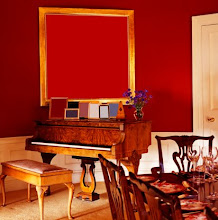Proper piano maintenance is a must if you want your piano to stay in great shape and be playable for years to come. Though it most likely sits in a corner of your living room and seems to be self sustaining, it is not.
Here are a few basic elements of piano care:
1. Clean it regularly to ensure that the case stays in beautiful like new condition. A light furniture polish, such as Old English, every couple of months will do wonders to keep your piano looking its best! Just be sure not to over soak it, use a damp (barley moist) cloth to dust it and then rub it down with a light coat of polish.
2. On occasion you may be inclined to vacuum/dust out the inside (especially if yours is a grand piano) . This will not only help it to look better and keep all that dust from escaping into your home but will also help to keep the strings in good shape. *Never get the strings/wires wet! This will cause severe damage if they begin to rust of corrode because of the moisture on them.
3. Have your piano tuned at the turn of the seasons. The most prevalent reason that pianos travel out of tune is a change in temperature and humidity. These two factors cause the wood and metal in the piano to contract and expand and in turn created varying amounts of tension on the strings which causes it to sound "out of tune" and may even cause a pitch change if not caught and remedied soon.
Tuesday, September 16, 2008
Been a while since your last piano tuning?
If you answered yes, than your piano may require a "pitch raise" tuning. Most major piano manufacturers suggest that their pianos be tuned at least twice a year (every 6 months) and if you play hard or frequently maybe even more often.
the long and the short of it is that if your piano hasn't been tuned in a few years it may need a pitch raise. This type of tuning is required due to the piano strings/wires loosing tension after a while and therefore dropping off of proper A440 pitch.
A pitch raise tuning involves tightening each string and bringing it back to the proper tension. The reason that it is so important for your piano to stay at proper pitch is that there are certain "tension dependent" portions of your piano (such as the sound board, harp and even the case to a degree). These elements require that a certain tension be placed on them in order for them to stay as the manufacturers intended.
I have actually seen piano sound boards crack due to uneven and improper tension amounts being placed on the strings! This makes for a very expensive repair but is easily avoided!
The best bet is to have your piano tuned by a professional at least twice a year whether it is played or not. This ensures that your piano will stay in great shape for generations to come!
the long and the short of it is that if your piano hasn't been tuned in a few years it may need a pitch raise. This type of tuning is required due to the piano strings/wires loosing tension after a while and therefore dropping off of proper A440 pitch.
A pitch raise tuning involves tightening each string and bringing it back to the proper tension. The reason that it is so important for your piano to stay at proper pitch is that there are certain "tension dependent" portions of your piano (such as the sound board, harp and even the case to a degree). These elements require that a certain tension be placed on them in order for them to stay as the manufacturers intended.
I have actually seen piano sound boards crack due to uneven and improper tension amounts being placed on the strings! This makes for a very expensive repair but is easily avoided!
The best bet is to have your piano tuned by a professional at least twice a year whether it is played or not. This ensures that your piano will stay in great shape for generations to come!
Subscribe to:
Comments (Atom)

